Avyakta Chelle
Any Other Thoughts, Hedgehog? Linking Deliberation Chains in Collaborative Dialogues
Oct 25, 2024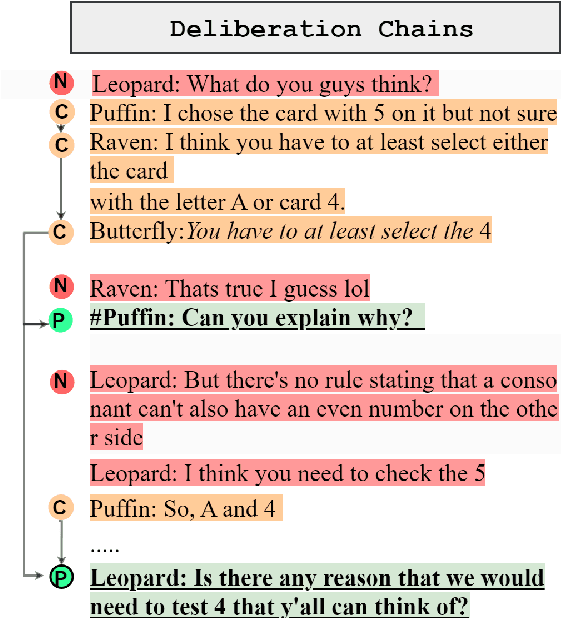
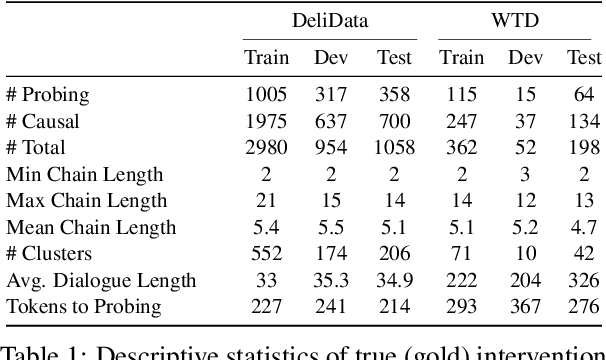
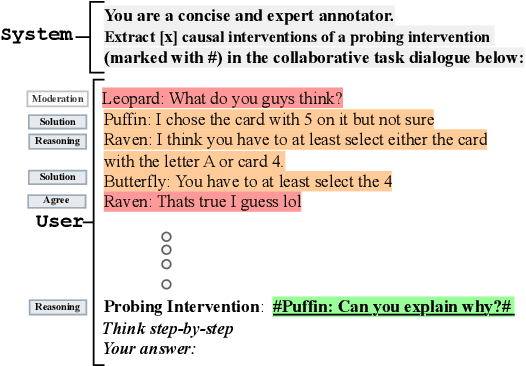
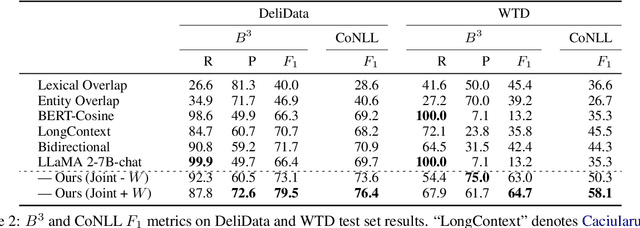
Abstract:Question-asking in collaborative dialogue has long been established as key to knowledge construction, both in internal and collaborative problem solving. In this work, we examine probing questions in collaborative dialogues: questions that explicitly elicit responses from the speaker's interlocutors. Specifically, we focus on modeling the causal relations that lead directly from utterances earlier in the dialogue to the emergence of the probing question. We model these relations using a novel graph-based framework of deliberation chains, and reframe the problem of constructing such chains as a coreference-style clustering problem. Our framework jointly models probing and causal utterances and the links between them, and we evaluate on two challenging collaborative task datasets: the Weights Task and DeliData. Our results demonstrate the effectiveness of our theoretically-grounded approach compared to both baselines and stronger coreference approaches, and establish a standard of performance in this novel task.
Okay, Let's Do This! Modeling Event Coreference with Generated Rationales and Knowledge Distillation
Apr 04, 2024


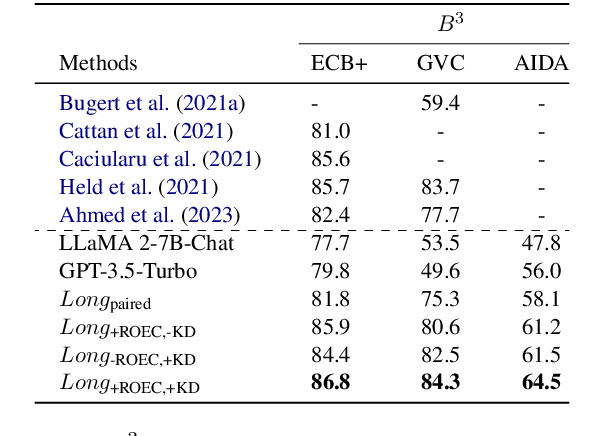
Abstract:In NLP, Event Coreference Resolution (ECR) is the task of connecting event clusters that refer to the same underlying real-life event, usually via neural systems. In this work, we investigate using abductive free-text rationales (FTRs) generated by modern autoregressive LLMs as distant supervision of smaller student models for cross-document coreference (CDCR) of events. We implement novel rationale-oriented event clustering and knowledge distillation methods for event coreference scoring that leverage enriched information from the FTRs for improved CDCR without additional annotation or expensive document clustering. Our model using coreference specific knowledge distillation achieves SOTA B3 F1 on the ECB+ and GVC corpora and we establish a new baseline on the AIDA Phase 1 corpus. Our code can be found at https://github.com/csu-signal/llama_cdcr
 Add to Chrome
Add to Chrome Add to Firefox
Add to Firefox Add to Edge
Add to Edge